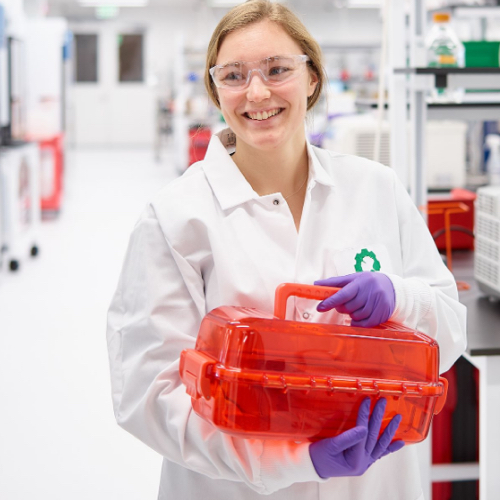We talk about agility a lot in tech, but often only at the small-team level. This is unfortunate, since an agile team doesn’t operate in a vacuum. Agile teams often fail to reach their potential unless the whole company is also agile. Ginkgo is such a place. Let me show you what I mean.
Ginkgo’s mission is to make biology easier to engineer. We invent powerful, flexible bio-engineering processes that run at massive scale. We apply these techniques to many diverse business domains, from agriculture to consumer electronics, so every project is different.
Ginkgo meets these challenges by always investing in its people, tools, processes and equipment. We talk about scalability and adaptability every day. We do countless company-wide knowledge sharing events. We make flexible plans, as everything can change tomorrow. We encourage decisiveness. Being nimble costs more, but we consider it to be a great investment.
When COVID-19 happened, these strategies paid off.
As COVID-19 spread, we realized our services could help the world, and we wanted to contribute. We can do things no other company can do. We knew that taking these projects on would be a challenge and that we would need the right partners; Ginkgo isn’t in the human disease space, but as a platform we can accelerate many different biological engineering efforts. We adjusted our existing projects and spun up whole new ones in a few days.
All told, the company pivoted in the span of about two weeks and we are executing now. And we did that while also moving most staff to remote-only work! It wasn’t luck: all of the teams in Ginkgo were given the capacity and skills to adjust on the fly. That’s by design, and that’s company agility.
I am of course proud of my department, Digital Technology (DT). DT’s teams responded admirably:
- Our DevOps team always thinks ahead and invests in capacity and automation. Our infrastructure remained drama-free, even as we’ve scaled some of our key applications by a factor of 10.
- Our Dev team obsesses about scaling and CI/CD. They quickly modified and redeployed services as needed to handle our new projects. They use shiny tools such as AWS Lambdas so that they can scale up workflows on demand.
- IT proactively modernized our remote work technology before the crisis, resulting in a smooth remote work transition.
- The Data Engineering team made sure all the new data was available for analysis. They use scalable data warehousing tools like Snowflake.
- Our expert PMs quickly reprioritized work across teams. They have the experience and protocols to quickly and decisively adjust old plans and approve new ones. The cats remained admirably well-herded throughout.
Agility doesn’t just happen. Companies have to make it a goal to be agile, and then they have to provide the teams with the required resources. That means money, time, training, and empowerment. The payoff is huge: in times of crisis, you experience decisiveness and confidence, not panic. And maybe, just maybe, you get to do some good in the world. It’s an awesome experience.
